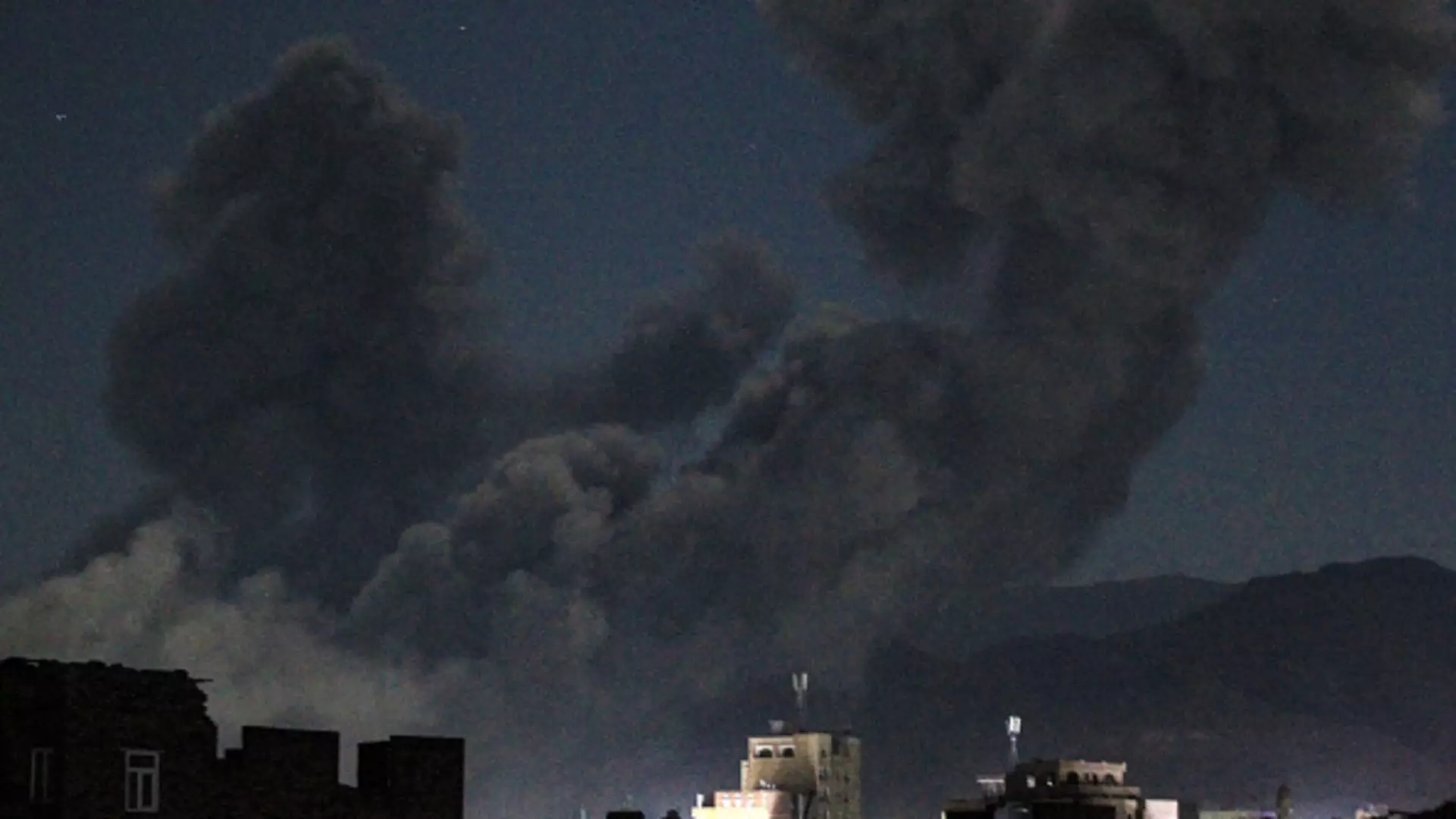On a fateful Saturday, U.S. President Donald Trump escalated military engagement in the Middle East, launching strikes against Yemen’s Iran-aligned Houthi rebels. With rhetoric steeped in both bravado and aggression, Trump laid down a challenge not only to the Houthis but also to their Iranian backers. The strikes resulted in the deaths of at least 31 individuals—including many women and children—a stinging reminder that in this complex geopolitical theater, the lives of innocents often become collateral damage in a wider ideological battle.
This brutal initiation of force represents arguably the most significant U.S. military response in the region since Trump assumed office, a move that raises immediate questions about the ethical trajectory of U.S. foreign policy. While the Houthis have indeed played a troubling role in exacerbating tensions in the Red Sea through attacks on shipping, the remedy of airstrikes and military intervention raises alarms about the U.S. approach to conflict resolution and the prioritization of military might over diplomatic discourse.
Belling the Cat: Whose War Is It Really?
As the bombs fell, the Houthis and their allies quickly labeled these strikes as a “war crime,” suggesting a deepening moral chasm between the U.S. administration and the very people it has targeted. Trump’s belligerent rhetoric, where he threatens devastating consequences for anyone who opposes U.S. actions, risks framing a complicated civil strife as a simplistic narrative of good versus evil. The Houthi leadership insists on their independent decision-making and dismissal of Iranian mandates, yet their ongoing attacks on vessels in the Red Sea raise complex questions about agency, loyalty, and the role of foreign influence in localized conflicts.
Trump’s assertion that Iran was culpable in inciting violence doesn’t factor in the broader narrative of Western interventionism fueling resentment across the Middle East. As the U.S. has selectively applied military force, one must ponder: Is the objective ensuring stability and peace, or is it merely exerting U.S. dominance over Iran’s expanding influence in the region? With the Biden administration previously attempting a more restrained approach, the pivot towards aggressive strikes signals a drastic shift in U.S. strategy that plethora of environmental and social vitriol will inevitably come with dire consequences.
Diplomatic Relations on Life Support
Iran’s reaction was immediate and hostile; their Revolutionary Guards countered Trump’s threats with warnings of a decisive response. This back-and-forth tit-for-tat not only jeopardizes any potential for dialogue but exacerbates sectarian differences. The ongoing diplomatic standoff over Iran’s nuclear ambitions, paired with its backing of groups like the Houthis, ensures that both sides of this escalating conflict see little room for compromise. Trump’s letter to Iranian Supreme Leader Ayatollah Khamenei, seeking negotiations, seems disingenuous when juxtaposed with his military actions, revealing a dissonance in U.S. foreign policy that confuses strength with recklessness.
Houthi retaliations, including the resumption of attacks on Israeli shipping vessels, further complicate an already volatile situation. As they frame these acts of aggression as a form of solidarity with oppressed individuals, the darker implications of such warfare become evident. Casualties mount, and so do retaliatory strikes; what ensues is a cyclical pattern of violence that undermines prospects for sustainable peace.
Consequences of Collateral Damage
The human cost of these military operations is staggering and must not be overlooked. Anees al-Asbahi, spokesperson for the Houthi-run health ministry, reported substantial casualties, with at least 101 others injured, most of whom were innocent civilians caught in the crossfire. This exacerbates the already dire humanitarian situation in Yemen, where millions face starvation, disease, and a lack of basic emergency resources. The notion that military force will yield fruitful results is as antiquated as it is catastrophic, particularly when weighed against these profound human sacrifices.
Moreover, as the global community looks on with trepidation, we cannot ignore the ripple effects of such military actions. The Houthis are not just a local militia; they have become a potent symbol of resistance against perceived imperialistic aggression. Each death attributed to U.S. strikes feeds into this narrative, further galvanizing anti-Western sentiment across the region.
The situation in Yemen illustrates a failed strategy that prioritizes militarism over meaningful engagement with the complex realities of local governance and social order. There is a pressing need for a recalibration of U.S. foreign policy—one that acknowledges the limits of military intervention while rewarding diplomatic efforts with an understanding of cultural and regional intricacies. The human price of warfare is too high, and for a nation to position itself as a beacon of freedom, it must first understand the cost of its actions on distant shores.


Leave a Reply